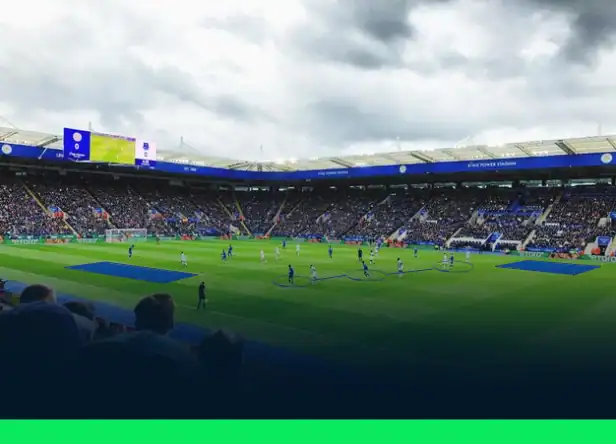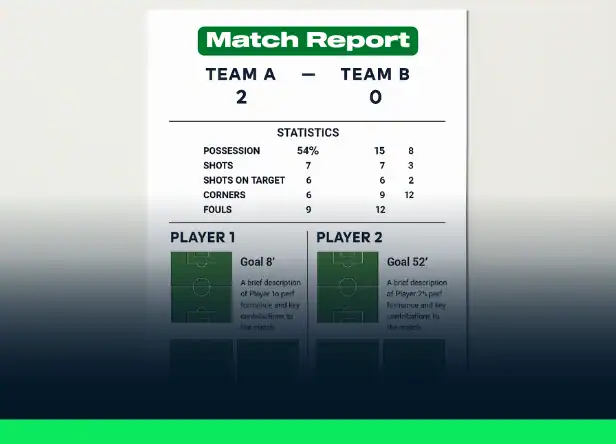In an increasingly structured soccer world, where every recruitment decision can impact an entire season, the scout’s role has become central in professional clubs, amateur teams and academies.
Want to know how to become a soccer scout? Here’s a complete guide to understand the profession, required skills, recommended training, career opportunities and advice for getting started in scouting.
What is a soccer scout?
The scout is responsible for identifying players who meet the needs of their club, coach or agency. They must spot talent, analyze profiles and provide precise evaluations based on direct observation or video, as well as data and the player’s history.
“The hardest part isn’t seeing what the player does today, but imagining what they will be able to do tomorrow.” – Sven Mislintat, former head of recruitment at Borussia Dortmund and Arsenal
To become a scout, it’s not enough just to love soccer. Scouting is a true profession that requires specific professional skills.
The missions of a soccer scout
Of course, everyone dreams of one day becoming the scout for a prestigious club. To get there, you’ll need to put in a lot of hard work! First and foremost, you need to clearly understand the key tasks a soccer scout must accomplish:
- Travel frequently and tirelessly visit clubs and soccer stadiums in search of that rare gem.
- Watch and analyze videos of matches and training sessions to extract valuable statistics for their database.
- Evaluate each player’s talent based on the position they play on the team.
- Be a skilled salesperson and sharp negotiator to stand out from the competition and successfully secure contracts for your recruits.
What skills are needed to work as a soccer scout?
Contrary to popular belief, instinct alone is no longer enough. To be able to discover the next soccer star, a scout must combine analysis, rigor and communication.
Here are the essential skills to master to become a soccer scout:
Soccer Expertise
- Have an in-depth knowledge of the technical, physical and economic aspects of soccer
- Ability to assess a player’s performance according to their position, role and the team’s tactical system
- Long-term vision regarding a player’s potential for development
Observation and Analytical Skills
- Ability to see beyond appearances: behavior, consistency, game intelligence
- Critical thinking to distinguish between a good match performance and a genuinely good player
- Understanding of the “match” between a player and a club’s project or playing style
- Proficiency in soccer video analysis software and tools
Thoroughness in Evaluation
- Ability to write clear and well-argued scouting reports
- Use of standardized evaluation grids
- Strong writing skills to effectively communicate observations and assessments
Personal Qualities
- Geographic mobility and flexible working hours
- Strong interpersonal skills and ability to build a professional network
What training is needed to become a soccer recruiter?
The profession of recruiter is not regulated, but in an increasingly demanding environment, serious training is essential to be credible with clubs.
At SoccerEDU, our soccer scout course training is designed by experienced scouts, and our program combines theory and practical application for a professional training course that is accessible at all levels and 100% online.
The content of our training will enable you to become an expert in the following areas:
- Understanding the recruiter’s role and scouting networks (training centers, agents, pathways)
- Observing a player by analyzing their technical, physical and mental potential
- Evaluating a professional player based on their position, statistics and tactical profile
- Structuring a clear, objective and well-argued recruitment report
- Using professional platforms like Wyscout or InStat to refine your research
- Knowing the legal basics of the profession: transfers, fees, FIFA regulations
- Understanding transfer market dynamics and building an appropriate strategy
At the end of the training, if you have put in the necessary work, you will be fully qualified to work as a soccer recruiter.
What does a recruiter’s day-to-day look like?
The recruiter, often discreet, works behind the scenes but plays a decisive role in building a competitive squad. Their day-to-day is paced by matches, field observations and profile analysis, with a sometimes nomadic lifestyle moving between stadiums, report writing and making calls.
“The primary quality of a scout, a recruiter, is the ability to adapt to the request, even if it differs from their own beliefs about the game or the players.”- Mathieu Seckinger / Head of Recruitment at the Olympique Lyonnais Academy
The Role of a Club Scout
A scout working within a club is directly connected to the recruitment department, the sporting director or the head coach. They follow a specific set of guidelines and are often specialized in a particular area, level or type of player (youth, specific positions, targeted leagues, etc.).
Their day-to-day routine alternates between attending matches, writing scouting reports and participating in sporting meetings, with a particularly intense workload during transfer windows.
Video tools (such as Wyscout, InStat, etc.) allow them to analyze multiple player profiles simultaneously, confirm an initial impression before traveling or objectively compare two players based on defined criteria.
The Role of a Freelance Scout
A freelance scout operates independently, without being tied to a specific club. They attend matches (often at the local level), build their own player database and offer their reports to clubs, agents or specialized platforms.
Often nomadic and multitasking, they combine live scouting, video analysis and active outreach. To succeed, they must stand out through the quality of their evaluations and their ability to build a network. Once again, video is a key asset—saving time, expanding scouting reach and helping to persuade from a distance.
What is the salary of a soccer scout?
The level of pay depends on several factors: whether the scout is employed full-time or works freelance, the level and financial standing of the club and the strength of the scout’s network.
The more prestigious the club, the higher the salary tends to be. Naturally, a scout working for a top-tier club will earn significantly more than one working for a smaller, lesser-known team.
Salary scale for a soccer scout
| Status | Estimated gross annual salary |
|---|---|
| Volunteer / amateur beginner | $0 to $10,000 |
| Freelance or consultant | $15,000 to $30,000 |
| Semi-professional or regional club | $25,000 to $35,000 |
| Professional club | $35,000 to $60,000 |
| Head of scouting department | $80,000 and above |
It is important to note that the remuneration may include a variable component linked to player signings and the scout’s performance.
For freelance scouts, a report or scouting sheet can be charged between $50 and $500, depending on the level and type of assignment.
Becoming a soccer scout, in summary
A behind-the-scenes job with a strong impact, the scout is today a cornerstone of a club’s sporting strategy. In the age of data, videos and digital tools, instinct alone is no longer enough – professional skills and strong analytical ability are required.
Good news: the profession is accessible even without a formal degree, provided you undertake serious training. Professional clubs, amateur organizations, player agencies… opportunities exist as long as you are credible and well-prepared.





